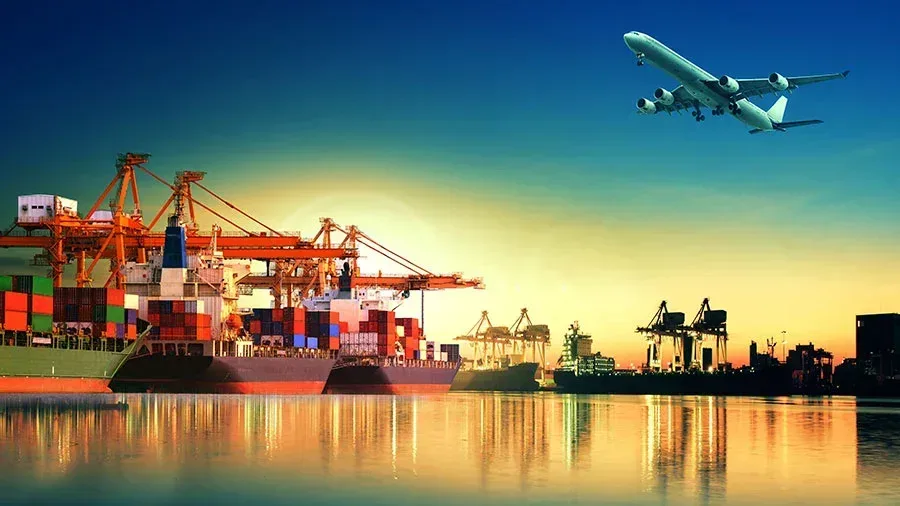All business owners know how challenging the global movement of goods can be in the tech and IT industries. So, understanding what is an Exporter of Record is extremely important. From navigating complex regulations and avoiding penalties to ensuring the safe arrival and choosing the right method of transportation, the process can quickly become overwhelming. An EOR can serve as a valuable asset, allowing you to focus more on growing your business while handling the intricacies of international shipping.
However, before deciding to partner with a 3rd party exporter of record, it’s essential to understand who is the exporter of record and how it can benefit your operations. Read on to find answers to all your questions.
Who is the Exporter of Record EOR?
So, before diving into the details, we first need to understand what is an EOR and the definition of exporter of record.
An Exporter of Record (EOR), also known as a shipper, is the legal entity responsible for managing exports from a country. They ensure compliance with export laws and documentation requirements, including licenses, permits, and classifications such as:
-
HS codes – correct product classification for customs.
-
ECCN (Export Control Classification Number) – required for dual-use and sensitive technologies.
-
OIEL (Open Individual Export Licence) – necessary for controlled goods under export control regimes.
Why Do You Need an Exporter of Record?
After discussing who is the exporter of record, now it is time to explain why you need an exporter of record for tech and IT Equipment. In global trade, compliance with export regulations isn’t optional—it’s essential. An EOR helps navigate complex, shifting rules and ensures your shipments remain smooth and legally compliant.
The Key Benefits of Working with an EOR include:
- Ensure Trade Compliance: The EOR secures export licenses, classifies goods correctly, and ensures clearance in the destination country.
- Avoid Penalties & Fines: Non-compliance can lead to severe fines, loss of export privileges, and reputational damage.
- Protect Business Reputation: Professional compliance protects credibility with clients, governments, and partners.
- Reduce Delays & Risks: Proper documents (licenses, HS codes, POA) minimize customs hold-ups and supply chain disruptions.
- Support Multi-Country Exports: An EOR manages varied regulations across different countries, simplifying complex export operations.
When is an exporter of record service required?
Now that we clearly understand the Exporter of Record definition, let’s explore when EOR services are required:
When You Export Goods to a Foreign Country
If your business is engaged in cross-border trade, an EOR is necessary to act as the legal entity responsible for the shipment. The EOR ensures that all export regulations, including licenses, documentation, and customs procedures, are met—especially if you lack a physical presence in the destination country. By handling these responsibilities, the EOR guarantees that your exports adhere to all relevant laws.
When You Lack a Local Entity in the Destination Country
If your company does not have a registered office or legal entity in the destination country, a 3rd party exporter of record (EOR) is required to manage the export process. The EOR assumes the role of the legal exporter, ensuring compliance with the destination country’s regulations, including import rules, and handling the necessary customs processes on your behalf.
When You Are Shipping Controlled or Regulated Products
Some goods—such as military equipment, sensitive technology, or products subject to export controls—require special documentation and licensing approvals. In these cases, an Exporter of record for tech and IT equipment ensures that all relevant export control regulations are met. This includes obtaining the necessary export licenses, such as ECCN or OIEL, and ensuring compliance with both national and international trade laws.
When You Want to Simplify the Export Process
The complexity of managing logistics, paperwork, and compliance for international shipments can be overwhelming. An exporter of record provider simplifies this process by handling the intricate details of export compliance. This allows your business to focus on other areas while ensuring that all export procedures are completed accurately and efficiently.
When Dealing with Multi-Country Exports
For businesses exporting goods to multiple countries, an EOR can streamline the process by acting as the exporter in various regions. The EOR manages different export regulations in each country, ensuring that your shipments comply with the specific laws of each destination, thereby reducing the complexity of multi-country exports and ensuring smooth operations across borders.
Exporter of Record (EOR) Compliance and Customs
Understanding and adhering to international trade regulations is crucial for smooth customs clearance. In previous sections, we discussed what is an Exporter of Record and the meaning of the term. Now, let’s explore the key areas of focus to ensure the export process runs efficiently:
Export Licenses and Permits
Some goods require special licenses or permits. These licenses are issued depending on the nature of the goods being shipped, and the provider must secure them to ensure compliance with export regulations.
Different Licenses for Different Goods
The specific licenses and permits required for a shipment can vary depending on several factors:
- The type of goods being exported: Some products, particularly those subject to export controls (e.g., military items or sensitive technologies), require specific permits before they can be shipped.
- The country where the goods are coming from (origin): The regulations in the country of origin play a key role in determining what type of export permits are needed. Each country has its export control laws.
- The country where the goods are being sent (destination): Destination country laws are equally important, as they dictate what types of goods are permitted and whether any restrictions apply.
Each country has its own set of rules, and depending on the type of goods and the countries involved, the export may require specific approvals and documentation before shipment can proceed. Ensuring all necessary licenses are obtained and regulations followed helps prevent delays and legal issues during the export process.
How to Choose the Right Exporter of Record
Choosing the right Exporter of Record is critical to ensure smooth and compliant international trade. It’s important to evaluate several factors, including the EOR’s expertise, knowledge of regulations, and ability to handle the specific requirements of your business and target markets. Selecting a reliable EOR with a proven track record of compliance can help you avoid costly mistakes and streamline the export process. Here’s a guide to help you make an informed decision when choosing the best provider:
1. Determine Your Export Needs
Before selecting an EOR, it’s important to assess your export requirements first. Consider the following:
- What products are you shipping? The type of goods may determine the level of complexity involved in the export process.
- What countries are you sending them to? Different countries have different import/export regulations, which the EOR should be familiar with.
- Do you need special licenses or permits? Some products, such as controlled goods, may require specific documentation or permits. Understanding these factors will help you identify the right EOR who can handle your specific needs.
2. Research Potential EOR Providers
Look for 3rd party exporter of record providers with experience in your industry and knowledge of the regulations in the countries where you intend to do business. An EOR with expertise in your specific product type and familiarity with your target markets will ensure smoother and more efficient exports. Conduct thorough research on potential providers to find one that aligns with your business goals.
3. Review the EOR’s Compliance History and Reputation
An EOR’s history and reputation are key indicators of its reliability. Review their track record in maintaining compliance with export laws and regulations. A well-established EOR should have a strong history of adhering to legal requirements and helping businesses navigate export processes without issues. This helps mitigate the risk of potential legal and regulatory complications for your business.
4. Verify Necessary Licenses and Certifications
Check that the EOR holds the necessary licenses and certifications to conduct export operations legally. This could include compliance certifications, export control qualifications, and other relevant accreditations. Ensuring that the EOR is properly licensed gives you confidence that they are equipped to handle the compliance responsibilities associated with your exports.
5. Evaluate Customer Support and Communication
Effective communication is crucial throughout the export process. Evaluate the EOR’s customer support and responsiveness. A good EOR should be accessible, proactive, and ready to address any questions or concerns you may have. They should provide clear guidance and support to ensure your goods move through customs efficiently and without delays. Test their response times and how well they communicate, as this will be a key part of the export process.
Streamline Your Global Supply Chain With IOR Africa’s
Ready to take your business to new heights? Don’t let complex export regulations hold you back. Ensure seamless cross-border exports so you can focus on what matters. With years of experience navigating international trade compliance across Africa and the Middle East, we provide a comprehensive solution that simplifies customs clearance, reduces risks, and ensures timely deliveries.
Fill out the form today to discover how our EOR services can streamline your global expansion. Let’s unlock your business’s full potential and drive success worldwide together
Frequently Asked Questions
What does exporting records mean?
Exporting records refer to the documentation and paperwork required for shipping goods internationally. These records include details about the goods being exported, the parties involved in the transaction, and compliance with export regulations. They are essential for customs clearance and ensuring that the shipment meets legal requirements.
What documents are proof of export?
Proof of export typically includes several documents that confirm goods have been shipped out of the country. These may include:
- Bill of Lading: A document that serves as proof of shipment and receipt of goods by the carrier.
- Commercial Invoice: A document from the seller that outlines the goods being sold, their value, and terms of sale.
- Export Declaration: A form submitted to customs that provides details about the export transaction.
- Customs Clearance Documents: Documents showing the goods have cleared customs and have left the country.
How to determine the exporter of record?
The Exporter of Record meaning refers to the legal entity responsible for ensuring the goods comply with all export regulations. This could be the seller, the shipper, or a third-party service provider. To determine the Exporter of Record, you need to identify the party legally responsible for the export process, including obtaining export licenses, completing export declarations, and handling compliance requirements.
Who is the exporter of record in a routed transaction?
The exporter of record in a routed transaction is the buyer (importer) who takes responsibility for the export process. This means the buyer appoints a freight forwarder or customs broker to handle the export, and in this case, the buyer becomes the Exporter of Record. The seller typically hands over the goods to the buyer’s chosen forwarder, who will manage the export formalities.
Who is the exporter of record in ex-works?
The exporter of record Under Ex Works (EXW) terms, the seller’s responsibility ends when the goods are made available for pickup at their premises. The buyer is responsible for the export process, including handling export clearance and paying any associated duties or fees. Therefore, the buyer is typically the Exporter of Record in an EXW transaction.

